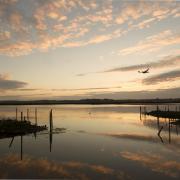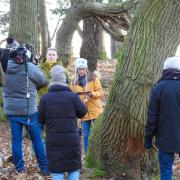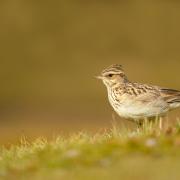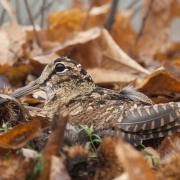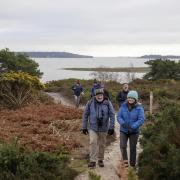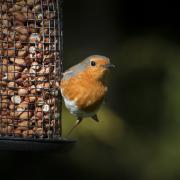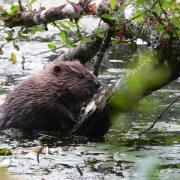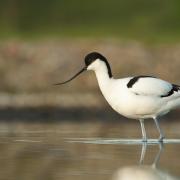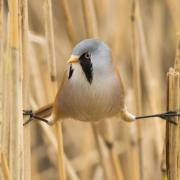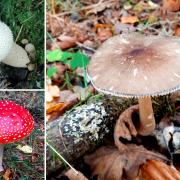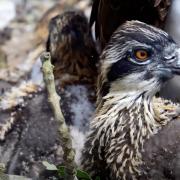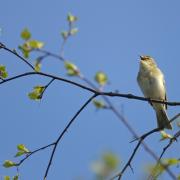During autumn and winter Brownsea Island is the go-to destination for large numbers of migrating birds. Zac Furbank of Dorset Wildlife Trust introduces us to some of his favourites

Situated in Poole Harbour, Brownsea Island is home to a rich variety of bird life but it’s over the autumn and winter months when you will see them in large flocks. Dorset Wildlife Trust (DWT) has five bird hides on the island, these overlook the reed bed, lakes and there are three by the large sheltered lagoon on Brownsea’s eastern shore, an area which is always brimming with activity.
Last year the lagoon had the largest flock of spoonbills ever seen in Britain. “Every year we are amazed at the sheer number of migrating birds that visit the Brownsea Lagoon,” said Chris Thain, DWT reserve manager on Brownsea. “We were particularly delighted to see so many spoonbills last year. It’s a unique sight, which is best seen from the hides for a really great up-close view.”
As well as spoonbills, large flocks of waders, particularly avocets, sandwich terns and black-tailed godwits can often be seen in the lagoon, with many choosing to nest there in the spring.
If you can’t get to the island then you can watch the birds of Brownsea lagoon on a live webcam at birdsofpooleharbour.co.uk/brownsea-webcam.
Avocet

The upturned bill of this wader is one of its main distinguishing features which, like the spoonbill, it uses to sift invertebrates from the mud in the lagoon. They breed in East Anglia, France and Germany, but the numbers seen at Brownsea Island is of international importance, where 1,200 or more can often be seen feeding in the winter.
Peregrine Falcon
This beautiful bird of prey can often be seen perched on the sea wall or the tamarisk bushes surrounding the lagoon. The presence of these hunters can spark panic amongst other birds. You can normally see one or two throughout the year on the island but particularly in the winter when the greatest number of birds are present.
Black Tail Godwit

These medium sized birds can be identified by their long bills and striking black and white pattern wings. They tend to breed in Iceland but can be seen throughout the year on Brownsea, with up to 2,500 visiting in the winter to feed on the worms found in the lagoon.
Spoonbill
These large white wading birds are the size of a heron and have a very distinctive spoon-shaped bill. The bill’s shape is perfect for sifting invertebrates from the mud which is the spoonbill’s main source of food. The birds can be seen on the island from late summer into winter. Because some of the birds are tagged we know that a lot of them originate from Holland and Denmark.
Getting to Brownsea Island
Both Dorset Wildlife Trust and the National Trust manage Brownsea Island for the benefit of wildlife and enjoyment of people. Public ferries run daily (March - November) to the island from Sandbanks from 10am, check for details. Also, ferries from Poole Quay & Bournemouth Pier. You can find out more at dorsetwildlifetrust.org.uk and click on Brownsea Island or call 01202 706445.
Opening Times: The island is open daily (10am – 5pm) until 1 November 2015. It reopens for weekends only from 6 February 2016, and is open daily from 19 March - 30 October 2016.
READ ON
• 4 great Dorset rivers - wildlife and walks - Sally Welbourn of Dorset Wildlife Trust takes us on a tour of her four favourite local rivers
• Badger cull confirmed in Dorset - The controversial badger cull, now in its third year in Somerset and Gloucestershire, is underway for the first time in Dorset.




